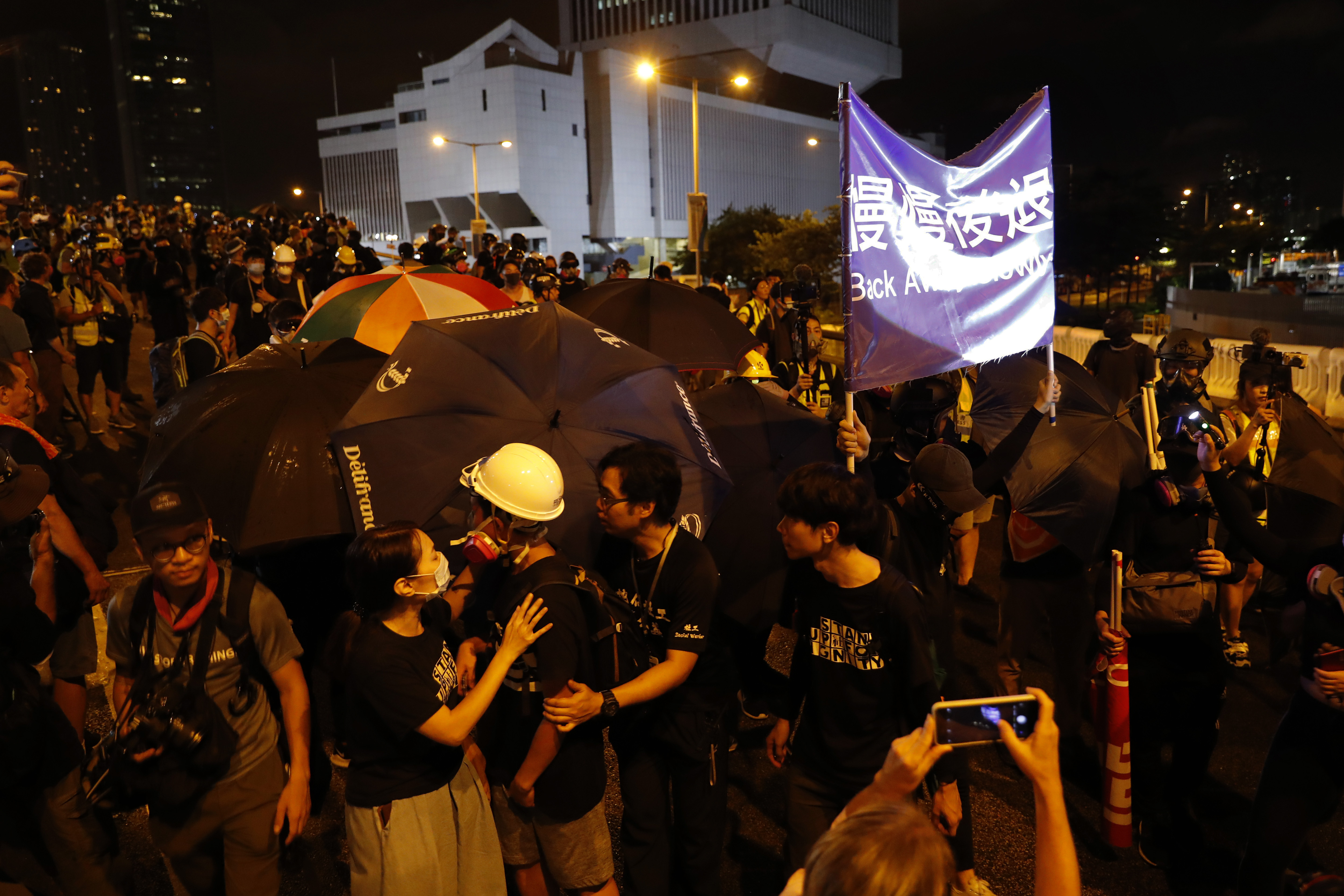
The Chinese government has mobilized its vast propaganda machine against
the pro-democracy protests that have roiled the streets of Hong Kong since this spring. And it has made America’s social media companies its unwitting partners in that campaign, they say.
Facebook and Twitter said Monday they had discovered and suspended a slew of social media accounts believed to be tied to the Chinese government-backed campaign that uses state and social media to portray the demonstrations as extremely violent and provoked by hostile foreign agents. The suspended accounts allegedly manipulated the context of images and videos and vilified protesters, whom one Facebook post likened to members of ISIS,
another name for Islamic State.
Twitter disclosed 936 accounts based in China attempting to sow political discord and undermine the legitimacy of the movement. These accounts made up the most active portions of a “larger, spammy network” of approximately 200,000 accounts the company suspended, according to a Twitter blog post.
Facebook said it removed seven pages, three groups and five accounts involved in deceptive tactics to circulate news about the protests with links to people associated with the Chinese government, according to a Facebook statement. Facebook says it opened an investigation after receiving a tip from Twitter.
In a related move, Twitter announced it will no longer accept advertising from “state-controlled news media entities.” The new policy came after reports by Gizmodo and Buzzfeed that called
attention to a surge of paid promotion of posts by Chinese government-controlled outlets such as China Daily and Xinhua criticizing the protests and portraying them as the result of American interference.
In a blog post, Twitter defined state-controlled media as “financially or editorially controlled by the state.”
Because this policy won’t apply to taxpayer-funded entities with independent oversight, outlets such as
BBC and CBC would be exempt, according to Twitter, although the company said it would not be disclosing a full list of exempt media.
The policy has “been in the works for some time and has been informed by a lot of research and NGOs working in this space,” according to a statement from Twitter.
Facebook does not ban ads from state-owned media and has not announced any similar ban. But Facebook spokeswoman Devon Kearns said in an email that the company will continue to examine its policies related to
state-owned media.
The series of protests unfolded in response to a government plan to allow extraditions to mainland China, reflecting a broader tightening of control across the country under China President Xi Jinping. More than 1.7 million protesters filled the streets in Hong Kong on Sunday in a peaceful demonstration, defying police restrictions to march across the city. The gathering marked one of the largest protests in 11 weeks of unrest.
In blog posts announcing the shutdowns, both social media platforms included samples of the material the deactivated accounts were attempting to spread. An image posted to Facebook showed protesters in gas masks juxtaposed with a picture of masked gunman with the caption (translated from Chinese), “Protesters. ISIS fighters. What’s the difference?”
A Twitter post characterized the protesters as “laying siege” to government institutions. “It’s a complete violent behavior, we don’t want you radical people in Hong Kong. Just get out of here !” another post read.
The removal of accounts associated with the Chinese government is a significant move but not without precedent, researchers said, given the criticism social media platforms fielded for not adequately cracking down on disinformation in the past.
Russia waged a campaign to spread disinformation ahead of the U.S.
2016 election and members of Myanmar’s military used Facebook as a tool to instigate ethnic violence, spreading propaganda that vilified the country’s mostly Muslim Rohingya minority group. These instances showed Facebook and others were not equipped to manage targeted campaigns, said Kat Lo, a researcher at UC
Irvine who studies content moderation.
But Lo said these moves by Facebook and Twitter might indicate they might be making an attempt to be more proactive than they had been in the past.